The current scenario in Jammu & Kashmir is drawing attention towards some ongoing imperatives. First, the assembly election results are a reflection of uncertainty on the political front with clear dividing lines between the Valley and Jammu region ; the government formation is still some distance away and will be a manifestation of whether national interest or narrow interests will prevail. Prime Minister Narendra Modi, in his usual decisive way, has clearly pointed towards national interest being supreme, indicating his preference for a dispensation which supports effective governance and inviolability of India’s claim over the whole of J&K. Second, is the situation in Pakistan where rationalists expect a change of heart after the horrendous Peshawar massacre and thus possible curbs on the Punjab based anti-India Jihadi groups. That nations do not change long standing strategic focus on the basis of temporary emotions, especially when they follow irrationality as a policy, has not sufficiently dawned on the rationalists.
Third, there is a clear message from the elections; that rebuilding the flood devastated Jammu and Srinagar regions has to be a priority even as development and governance become the main issues. Clearly the Prime Minister’s message has gone down well and a hope has emerged. Four, whichever way one wishes to read the large electoral turnout across the State, there is a clear move away from support to violence although separatist trends continue to persist, especially in the Valley region. Five, the Uri Fedayeen attack on the Army signifies that the Jihadi groups are not dead and gone and indeed can temporarily hold sway in the most unexpected areas. The security space in J&K yet needs the Army’s strong presence to ensure stability even as the Army struggles to refine its concepts and doctrines for the conflict resolution stage which seems to be upon J&K. Lastly, the LoC which was active for most of the second half of 2014 threatens to remain in contention as a major symbol for demonstration by Pakistan that it remains a major stake holder even though its hold over separatism has diluted.
Given these trends, how would the security scenario pan out in 2015 even as a new government of any political dispensation takes charge? What would the challenges for this government be, particularly on the security front? Interestingly, the concept of a secure J&K seems to be veering around the more comprehensive meaning of the term ‘security’ which in effect means strengthening governance and facilitating the public to lead a normal life with full aspirations just like any other part of India. In any coalition alliance, the contentious issue of AFSPA would become a bone of contention if different stand points exist. However, the larger question of the necessity of the Army’s presence in the hinterland to ensure the sustenance of gains towards greater stability will remain a major question which any political dispensation will have to tackle. The Centre with the advice of professionals is unlikely to compromise on this issue for the larger good of the security of the State. It may so evolve that with the elections behind them, the political class within J&K may put emphasis on development right from the outset and avoid involvement in emotive issues such as AFSPA which tend to divert agenda.
In any case, the Army will have to, in the light of the incidents at Chhatergam and Mohura (Uri), temper itself a little more to calibrate its operations in such a way that while ensuring its own security and preventing terrorist effectiveness, that the civilian space in the hinterland is more noticeably yielded. Professionals within the Army’s leadership will have to work overtime to send home the message to its rank and file and yet be seen to be sufficiently offensive in outlook. Professional Armies do not take kindly to curbs on their concept of operations but these have to move with the times and be a part of the overall national strategy and not one in isolation. There is a need for greater education of the rank and file of the Army on what constitutes a winning strategy; mindless violence and dominance is counterproductive and the Force Ethos has to involve greater trust for decisions of its own hierarchy. Never has the challenge for the Army been greater because efforts towards the last mile achievements in counter militancy campaigns tend to lead to overkill.
Two other aspects should dominate the security scenario. First are the LoC and the Jammu IB sector. The Centre and the State should not be surprised or perturbed by an expected ratcheting of violence in these areas. The ceasefire is effective only in patches. With Pakistan and the Jihadi groups unable to raise the level of violence inside J&K and under pressure internationally, it is the LoC and IB which will become symbols to showcase the continued interest. 2015 is likely to witness a significant shift towards violence on the LoC and its vicinity. Secondly, the increasing trends towards radicalization of youth and the power of social media to do that will need to be within focus of the intelligence agencies. If Pakistan and the Jihadi groups cannot dominate or exploit the physical space of the hinterland, they will attempt to do so by calibrating the psychological space in the hinterland and the physical space on the LoC.
Moving away from the military oriented aspects, the development agenda will need to translate into effective programs, suitably monitored from the Centre in a landscape where corruption, lack of will and inefficiency have ruled the roost. The closeness of the political dispensation in the State Government to that at the Centre will no doubt help but the Prime Minister’s words need to be given due credence whereby national interest will apply to all aspects of governance. Besides this, strengthening of the political outreach of the political parties achieved to a much higher level in the elections will need to be maintained. However, the disturbing trend is the hit that Panchayati Raj has taken with the targeting of sarpanches in various districts of the Valley. Sooner than later, the much ignored aspect will need focus. Lastly, those who have the good of J&K and an abiding interest in the Prime Minister’s mission of national interest at heart have to realize that without promotion of amity between Jammu and the Kashmir regions, the state and its people will never exploit the emerging peace dividend. There can never be a permanent state of alienation if strident efforts are made towards integration and rapprochement. Development and reconstruction of the effects of disaster are the identified vehicles for stability which both segments of the state have to adopt by putting aside their differences and perhaps allowing business, education and tourism to become the glue against the divisive factors of faith and ideology. That is the challenge after the turbulence and excitement of a truly momentous election is behind us.
(Disclaimer: The views and opinions expressed in this article are those of the author and do not necessarily reflect the official policy or position of the Vivekananda International Foundation)

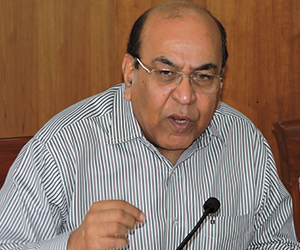
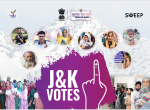

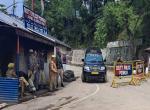
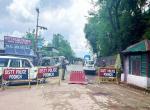

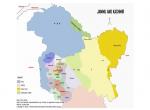


Post new comment